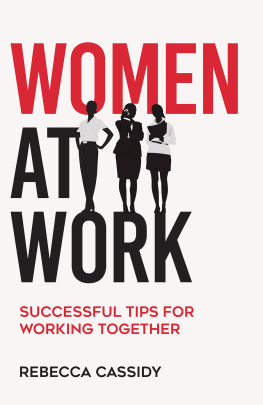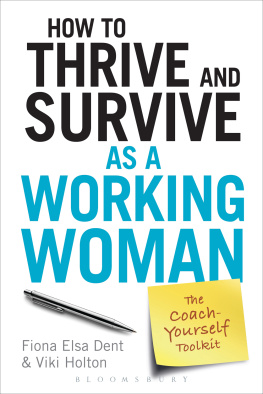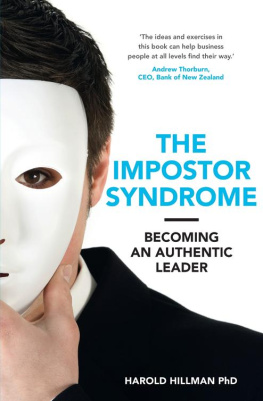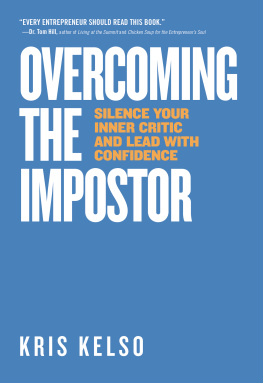Valerie Young - The Secret Thoughts of Successful Women: Why Capable People Suffer from the Impostor Syndrome and How to Thrive in Spite of It
Here you can read online Valerie Young - The Secret Thoughts of Successful Women: Why Capable People Suffer from the Impostor Syndrome and How to Thrive in Spite of It full text of the book (entire story) in english for free. Download pdf and epub, get meaning, cover and reviews about this ebook. year: 2011, publisher: Crown Business, genre: Religion. Description of the work, (preface) as well as reviews are available. Best literature library LitArk.com created for fans of good reading and offers a wide selection of genres:
Romance novel
Science fiction
Adventure
Detective
Science
History
Home and family
Prose
Art
Politics
Computer
Non-fiction
Religion
Business
Children
Humor
Choose a favorite category and find really read worthwhile books. Enjoy immersion in the world of imagination, feel the emotions of the characters or learn something new for yourself, make an fascinating discovery.

- Book:The Secret Thoughts of Successful Women: Why Capable People Suffer from the Impostor Syndrome and How to Thrive in Spite of It
- Author:
- Publisher:Crown Business
- Genre:
- Year:2011
- Rating:3 / 5
- Favourites:Add to favourites
- Your mark:
The Secret Thoughts of Successful Women: Why Capable People Suffer from the Impostor Syndrome and How to Thrive in Spite of It: summary, description and annotation
We offer to read an annotation, description, summary or preface (depends on what the author of the book "The Secret Thoughts of Successful Women: Why Capable People Suffer from the Impostor Syndrome and How to Thrive in Spite of It" wrote himself). If you haven't found the necessary information about the book — write in the comments, we will try to find it.
If you are a working woman, chances are this internal monologue sounds all too familiar. And youre not alone. From the high-achieving Ph.D. candidate convinced shes only been admitted to the program because of a clerical error to the senior executive who worries others will find out shes in way over her head, a shocking number of accomplished women in all career paths and at every level feel as though they are faking itimpostors in their own lives and careers.
While the impostor syndrome is not unique to women, women are more apt to agonize over tiny mistakes, see even constructive criticism as evidence of their shortcomings, and chalk up their accomplishments to luck rather than skill. They often unconsciously overcompensate with crippling perfectionism, overpreparation, maintaining a lower profile, withholding their talents and opinions, or never finishing important projects. When they do succeed, they think, Phew, I fooled em again.
An internationally known speaker, Valerie Young has devoted her career to understanding womens most deeply held beliefs about themselves and their success. In her decades of in-the-trenches research, she has uncovered the often surprising reasons why so many accomplished women experience this crushing self-doubt.
In The Secret Thoughts of Successful Women, Young gives these women the solution they have been seeking. Combining insightful analysis with effective advice and anecdotes, she explains what the impostor syndrome is, why fraud fears are more common in women, and how you can recognize the way it manifests in your life. With her empowering, step-by-step plan, you will learn to take ownership of your success, overcome self-doubt, and banish the thought patterns that undermine your ability to feeland actas bright and capable as others already know you are.
Valerie Young: author's other books
Who wrote The Secret Thoughts of Successful Women: Why Capable People Suffer from the Impostor Syndrome and How to Thrive in Spite of It? Find out the surname, the name of the author of the book and a list of all author's works by series.







